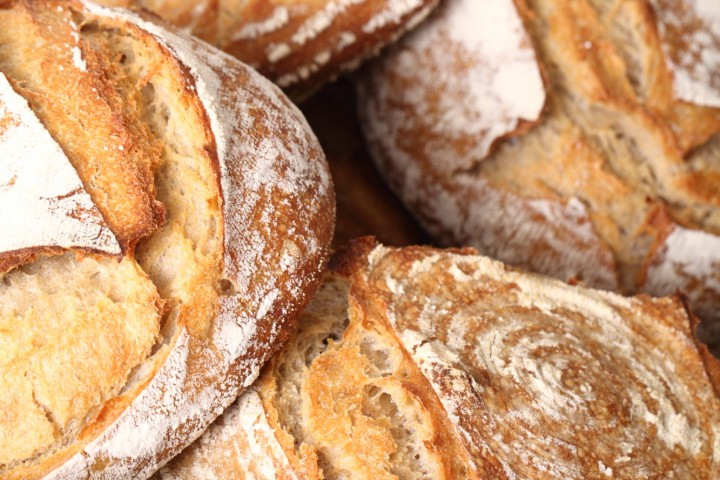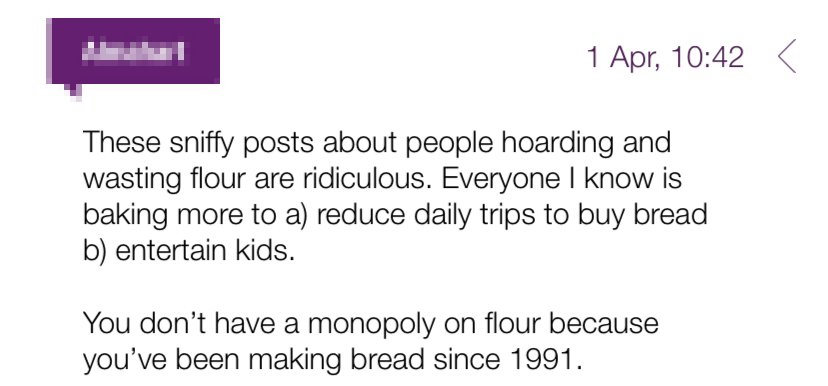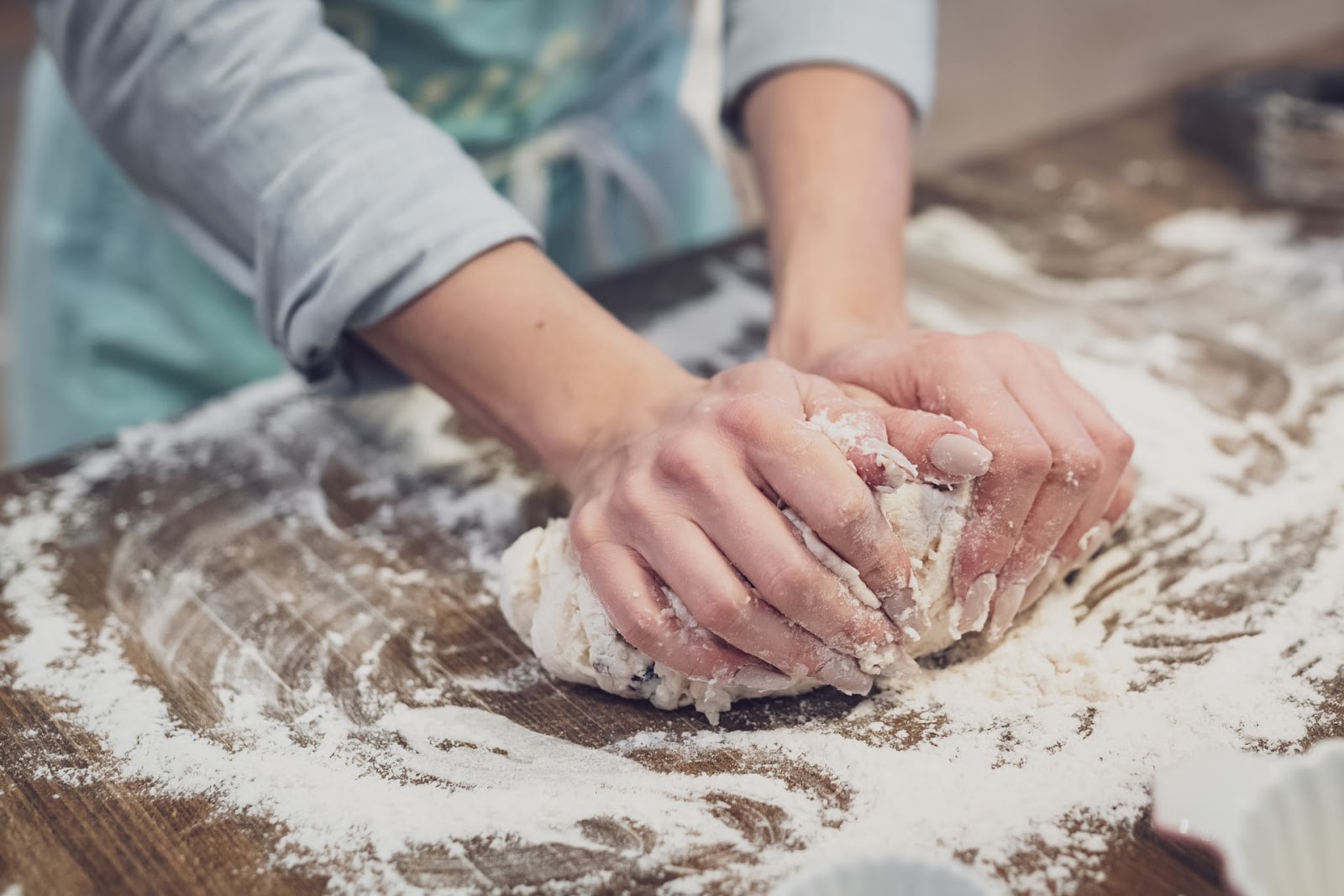As the UK experiences widespread flour shortages with more people taking up baking to pass the time in quarantine, social media has become a hotbed of arguments over who is most deserving of the staple kitchen ingredient.
Several weeks into lockdown and the days have become indistinguishable. Every morning you wake and reach for the only thing providing you with some form of connection to the outside world — your phone. Eyes only half open, you instinctively begin to scroll through your various accounts and, amidst the isolation memes, increasingly incoherent posts from friends and family, and the frenzied news stories you actively try to ignore, you notice a recurring theme.
Whole, sourdough loaves wrapped in tea towels looking as mouthwatering as something straight out of Bake Off. Banana bread oozing with perhaps one too many chocolate chips, posed artistically on a wooden board. Scones, muffins, cupcakes — you name it. Everyone and their mother seems to have taken up baking, but why?

With the world stuck indoors, we’ve a great deal more time to kill than we’re used to. It’s unsurprising, then, that new hobbies would be forming. Especially hobbies that somewhat fill the void left by our favourite bakeries (*cough* Greggs *cough*) which have sadly been forced to close their doors to the public until further notice. And, with every journey to the shops an increasing risk, it also makes sense that people would be wanting to avoid unnecessary trips in favour of a little culinary exploration.
However, as practical and wholesome as this is, with baking being the ‘thing to do’ during quarantine, supermarket aisles across the UK have been emptied and the scarcity of flour in particular — alongside an already heightened national anxiety — has lead to a new phenomenon: flour shaming.
Paired with an ever-rising demand for more, the continuous lack of the powdery white gold on store shelves is bizarrely leading to some serious upset. So much so that, with the country confined to their homes, those unsuccessful at getting their hands on the stuff have no choice but to take their concerns online.

Specifically on the Mumsnet forum and Facebook, angry groups have begun to viciously express their outrage towards the flour shortage, starting a bitter war of words about who is most deserving of the staple kitchen ingredient.
Hotbeds for abuse, these internet sites are being flooded with posts from seasoned bakers targeting the so-called ‘sourdough brigade’ (new bakers) and parents who simply wanted to entertain their children with some homemade Play-Doh.
‘F***ing crafts,’ said regular baker and mother of two, Jen to Vice. ‘That could obviously be used to make bread and you can still buy Play-Doh on Amazon, but you can’t get flour for love or money. It’s hugely wasteful and irresponsible. If it was already in their cupboards, fine, but actually going out and buying something that’s in shortage to make Play-Doh is tomfoolery!’
Then there are the novices, the younger generations who’ve decided to learn a new skill to keep themselves sane and ‘stop themselves from crying in Sainsbury’s,’ (said one user to an Instagram cooking group). Understandably defensive about their ‘flour rights,’ with tensions high, violently kneading a giant lump of dough is proving to be a great stress-reliever and source of distraction during these trying times.
‘If people want to take up baking, let them,’ said owner of a celebrity management and PR agency, Mayah Riaz to Vice. ‘I understand the uproar with a shortage of toilet paper, but why aren’t the ‘old school’ bakers having the same reaction to pasta shortages? Everything is in short supply and at the moment and who cares? It’s keeping people busy and happy, surely that’s what matters most during a crisis.’






















